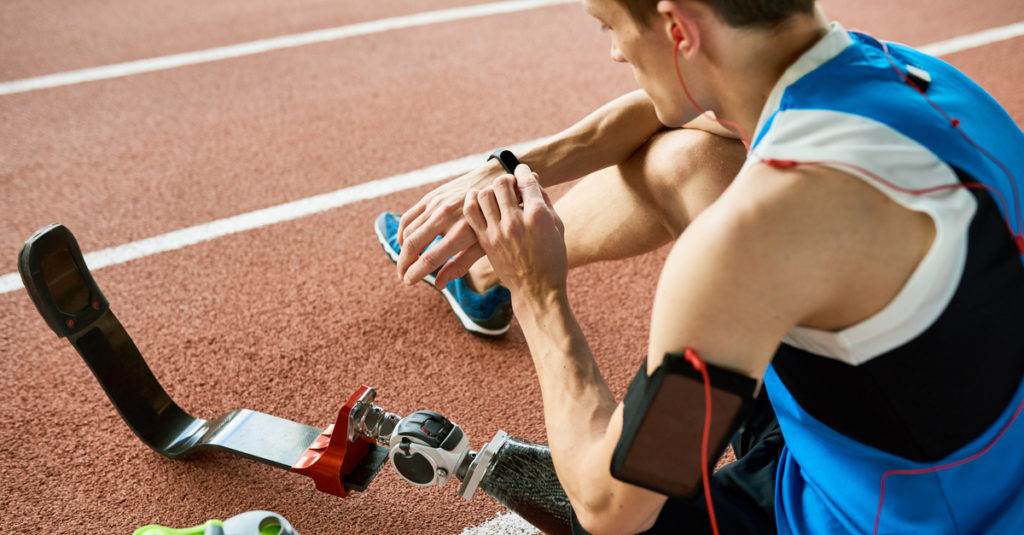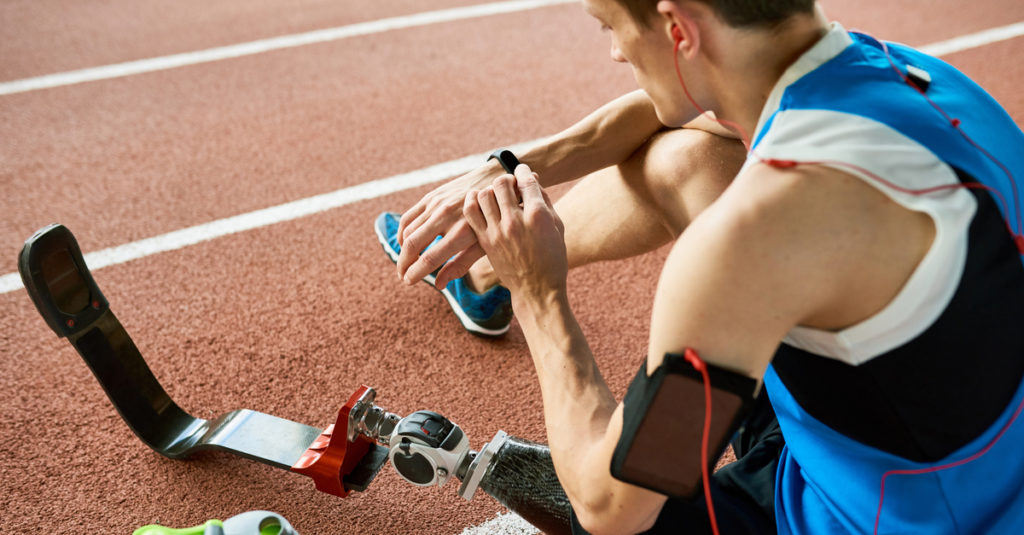Staying fit and eating healthy is important to anyone, but it’s especially important for prosthetic users. When you lose a limb, you lose a portion of your musculoskeletal system—this can put a lot of physical strain on the rest of your body. The emotional strain of adapting to life without a certain limb can weight on your mind as well. Your physical and mental recovery as well as your long-term health will all benefit from committing to a healthy lifestyle.
Exercise
Physical fitness is not something you can achieve quickly or easily—it’s a long-term process that requires work and dedication. It’s something that’s gradually built and then maintained for the rest of your life. Something that new amputees and prosthetic users need to remember is that trying too much too soon is counter-productive. Working yourself too hard will only lead to injury and discouragement—it takes several months for most people to recover from an injury or surgery.
Your physical therapist can work with you to figure out what exercises are good for you wherever you are in the healing process. The ideal exercise program will condition both your upper and lower body, as well as your cardiovascular system. Weight bearing activities are great for strengthening your musculoskeletal system, but make sure you’re only lifting what you can. Also, swimming is a popular exercise for amputees because it strengthens everything without putting any additional stress on your joints.
The most important thing you can do for your physical health is find an exercise that you truly enjoy and that fits well with your life. It can be something extremely simple, like walking or biking, or it can be more specific like taking yoga classes or climbing. It’s not uncommon for people who have lost a limb to become sedentary, especially during the few weeks before their physical therapy begins. This can lead to rapid weight gain, which will only cause extra problems.
Consider working with a specialized physical trainer. Getting motivated yourself can sometimes be difficult, especially if you’re adapting to life without an arm or a leg. Someone who’s trained to help people in similar situations to yours will make getting fit much easier.
Don’t discount the emotional health benefits that exercise can have either—the emotional toll of losing a limb can be immobilizing. Physical therapy or an ongoing exercise program can help reduce these feelings and lift some of the weight off of you.
Eating Healthy
Just like exercising, maintaining a healthy diet can’t be an overnight change. The best way to avoid discouragement or any shock to you system would be to gradually make healthier choices. Start with reducing your processed food and sugar intake, and drink a lot of water. Start adding fruits, vegetables, lean meat, low fat dairy products and whole grain bread to your daily diet. When you eat out, look for low fat or low calorie options, or ask that your food be cooked a different way—for example, getting grilled chicken instead of fried on your sandwich.
Good nutrition and regular exercise will have immensely positive effects on your skeletal system, and can help prevent osteoporosis. Bone density, bone mass and bone strength all naturally decrease as we get older. After age 50, your loss of bone tissue increases, especially in women. Most women will lose about 30% of their bone tissue, and men will lose about 17%. To reduce these risks, include calcium-rich foods in your daily diet like kale and other dark green vegetables or low-fat yogurt. Try to limit your caffeine consumption as well, because that blocks the absorption of calcium. Your physician may even prescribe calcium or vitamin D supplements, estrogen or fluoride.
Smoking
If you smoke, and you feel like quitting is too difficult or even impossible, there are options you can consider. Quitting smoking is the single most important step to enhancing the length and quality of your life. Nicotine Replacement Therapy has helped thousands of people give it up for good, so consider seeking outside information and support to help you.
For more advice and support, contact Biotech today.

